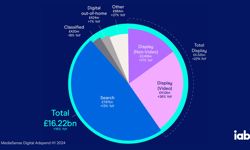
Q. What is the biggest publisher challenge you’re seeing today?
A:
The biggest challenge today is the diminished value that both the publisher and demand side are getting out of digital advertising. The latest ANA programmatic transparency study has revealed that, on average, only 36% of total ad spend effectively reaches the consumer, with 35% lost due to media quality issues.With the impending cookie deprecation, we are now fully entering the world of cookieless advertising for the open web and should not underestimate the scale of the transition. Publishers are under real revenue pressure in this environment and need to understand the best technologies to test and double down on, without taking up valuable time resources, or incurring additional ‘adtech taxes’ in the process.
Q. What is a publisher’s best response to this challenge, and what kind of help do they need as they negotiate the digital advertising ecosystem?
A:
Optimising media quality scoring for viewability, ad clutter and attention is an immediate way to improve performance in the programmatic market. Working with partners who have technology differentiators is also key - especially those who offer advanced contextual advertising solutions and are seamlessly interoperable with first-party identifiers.Q: There is talk of the ‘murkiness’ of the open auction due to lack of control, exposure to unsafe publishers and invalid traffic. Do you think the open exchange has been prematurely written off, and how can it be traded effectively?
A:
Indeed, the open auction is vulnerable to these elements, so we need to be vigilant at all times. However, we’ve always stood by the open internet, and specifically, the open exchange. After all, tech intelligence on the supply side - such as deeper placement level and attention optimisation - can make advertising work a lot harder for buyers and publishers than just limiting the amount of supply available.We continue to see the open exchange working incredibly well when curated with high-performing inventory based on media quality data, as tech providers continue to help unlock value which might otherwise be dismissed as waste.
Q. What would you say to those who are looking to private marketplaces (PMPs) as an alternative?
A:
While the goal of a PMP is having more control and higher quality, it’s basically the same process as with an open auction buy, but at an inflated price because of the way the deal is ‘packaged’ as private and somehow exclusive.PMPs are a very broad categorisation and their growth in recent years has been driven by CTV, audio and DOOH, but each has their special requirements for general deal creation, from audience and content object targeting to guaranteed deals for fixed impressions and CPMs.
Meanwhile, given the sizable volume of high-quality open web supply available today, we advise working with tech partners who can ensure your inventory continues to perform in the open exchange and who offer deal curation services for unique campaign requirements.
Q. What opportunities exist for publishers in the growing trend of media curation?
A:
Supply-side curation allows publisher inventory to perform better within the confines of the open auction and in custom deals, all without the need for cookies. Traffic-shaping curates best-performing inventory to increase revenue and efficiency. Buyers and data partners can leverage the infrastructure of sophisticated ad-tech platforms that act as curators to build the tailored deals they require at source, giving them greater control and flexibility.Publishers will benefit from new revenue streams as curation accelerates on the demand side. They can also choose to be curators themselves, promoting their first-party data and exclusive deals on a direct-deal basis.
Q. What cookieless targeting solutions hold the most potential for publishers? And how viable is Privacy Sandbox as a solution so far?
A:
Contextual targeting powered by rich semantic and knowledge-graph technology is an immediate solution being used by marketers today. Publishers who score well on media quality data and provide more demanded content will benefit from this increased shift. First-party and authentication-derived identifiers are also critical, as will be the need to test and learn with a variety of options as the cookieless world matures.Privacy Sandbox solutions will also be a core component once they are fully enabled for market deployment, following ongoing partner testing and feedback throughout 2024.
Q. What’s in the pipeline from Onetag?
A:
At Onetag, our passion is to solve real business problems by looking at semantics, attention metrics and ad clutter for each impression and placement to improve quality and reduce wastage.We are expanding our curation platform offering, bringing in further data and tech partners alongside our existing proprietary strength in traffic shaping and media quality data curation.
Our differentiated demand-led offering includes OpenVerified, our smart AI DSP assist which analyses every impression to curate your bidstream and increase buying efficiency; and DealCurate, which provides deal curation services for your unique campaign requirements.
Our aim is to make it even easier for our publishers and demand partners to benefit from media curation as we fully embrace the new world of cookieless advertising.

About us
Onetag AI-powered programmatic curation technology delivers effective digital advertising for the open internet. We provide the easy way to better media performance.
Our AI feeds your DSP with curated, high performing inventory based on media quality data without cookies. We filter out all the wastage to deliver only viewable and uncluttered inventory, contextual relevance and engaged users.










